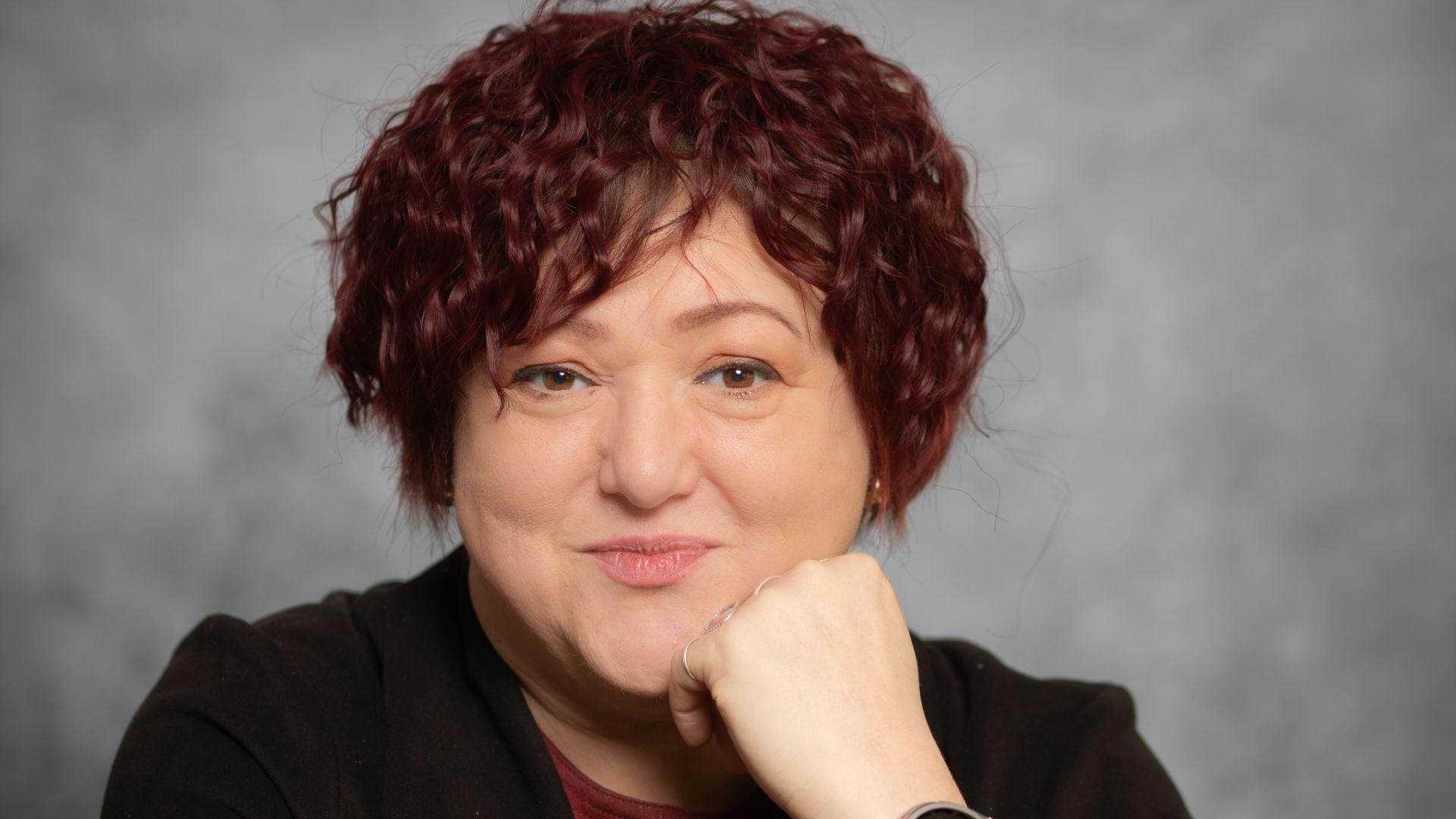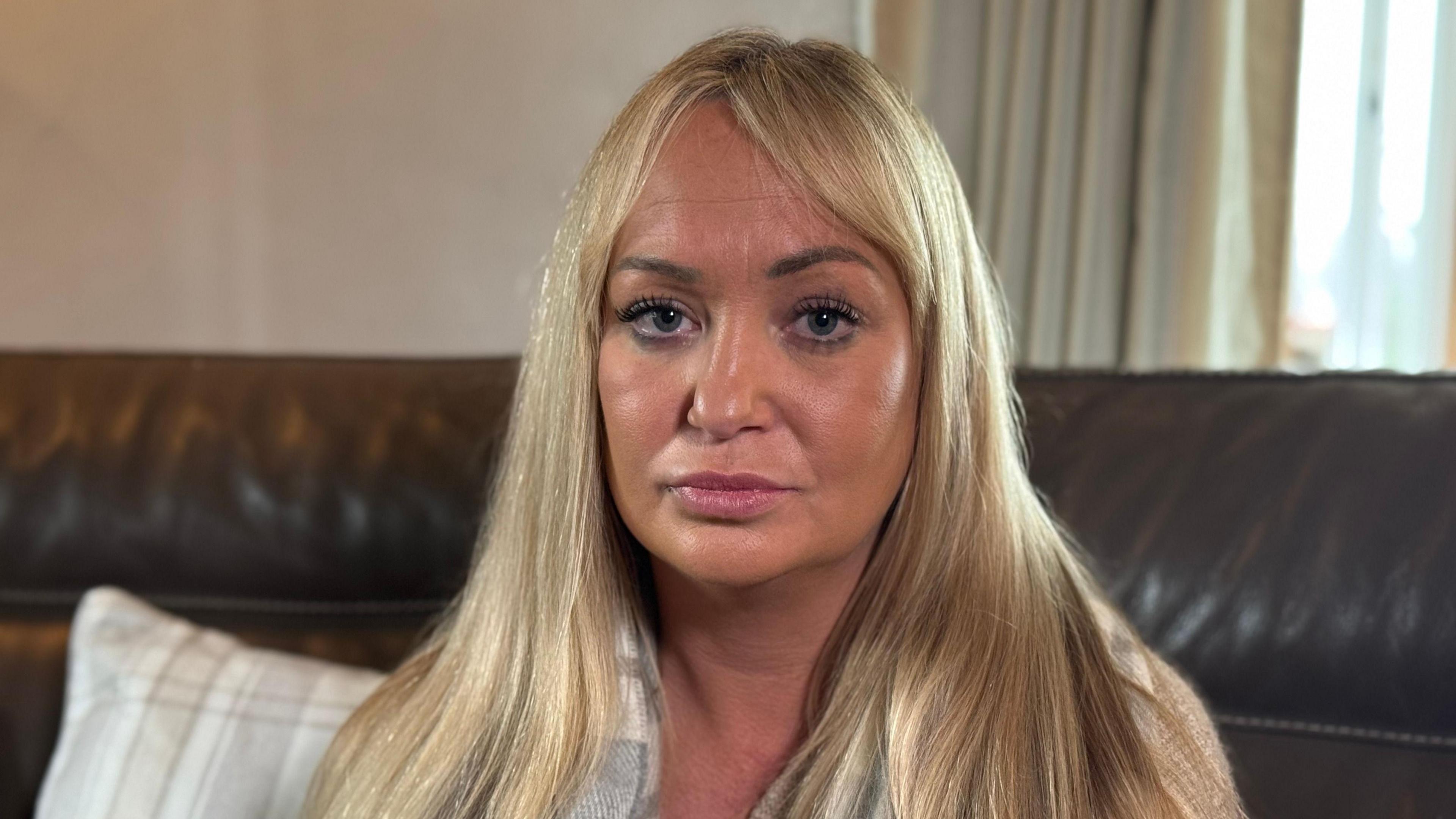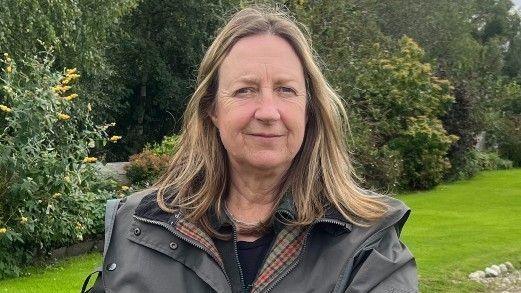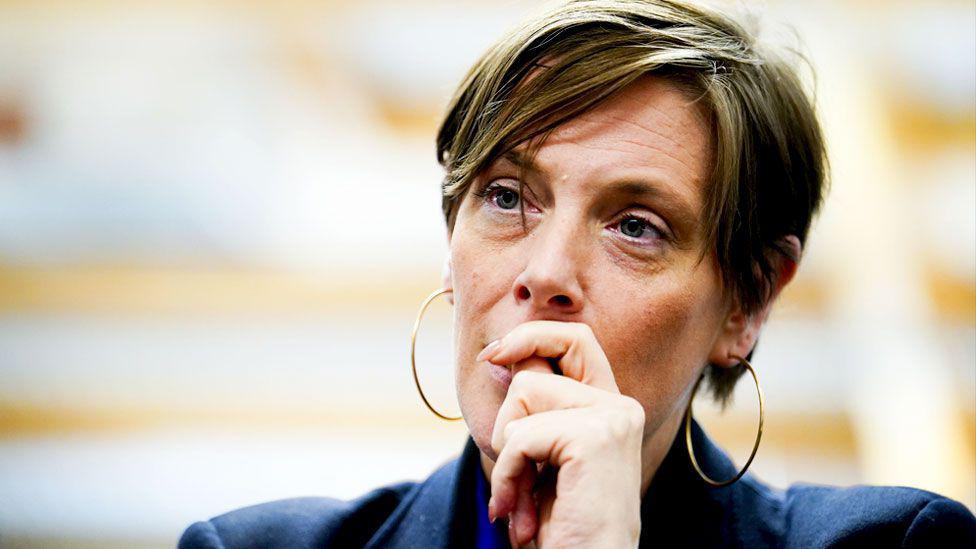'More needs to be done to tackle coercive control'

Saskia Lightburn-Ritchie, CEO of domestic abuse charity MyCWA, says laws around abuse need to be strengthened
- Published
The head of a domestic abuse charity says more needs to be done to tackle the offence of coercive control.
Saskia Lightburn-Ritchie, CEO of MyCWA in Crewe, Cheshire, will be part of a group meeting with safeguarding minister Jess Philips on Tuesday in a bid to strengthen laws around emotional abuse.
She said her charity helped almost 5,000 people last year who had experienced the form of abuse but believed there were many more suffering in silence.
"I think we probably don't even touch the tip of the iceberg," she told BBC Radio Stoke.
Coercive control, which became a criminal offence in 2015, can involve a range of behaviours from abusers seeking to gain or keep control of a partner or family member.
This can include constant criticism or humiliation, extreme jealousy, monitoring activities, limiting access to money and restricting the victim's movements.
Ms Lightburn-Ritchie, who fled to a refuge during an abusive relationship in the early 1990s, said many victims often did not realise they were experiencing abusive behaviour.
'Not working'
She said: "If you're told regularly how stupid you are, how unattractive you are, how crazy you are, how nobody would believe you, how nobody would ever have confidence in you – over time those messages start to sink in and become self-belief.
"You are mainly concerned with the wellbeing of your partner and not thinking of the impact on yourself or your children.
"It's really, really hard to understand, and most people end up quite broken before they start rebuilding."
Ms Lightburn-Ritchie said there had been more than 40,000 arrests and fewer than 2,000 cases brought since coercive control became an offence under the Serious Crime Act 2015.
"It's clearly not working in the way it was intended to," she added. "I don't believe we need new legislation; what we need is for the existing legislation to be delivered correctly and to make a difference in the way it was intended to."
She said the group will propose a number of recommendations to Phillips on Tuesday, which includes examining domestic abuse-related suicides "as homicides".
"We absolutely don't want people to be charged with things they haven't done, but at the moment, these deaths are being written off as suicides," she said.
"If our daughters or our sons hadn't been involved with these people [abusers], they would still be alive today."
If you have been affected by this story or would like support then you can find organisations which offer help and information at the BBC Action Line.
Get in touch
Tell us which stories we should cover in Cheshire
Read more Cheshire stories from the BBC and follow BBC Stoke & Staffordshire on BBC Sounds, Facebook, external, X, external and Instagram, external.
Related topics
- Published17 October

- Published24 September

- Published26 August
